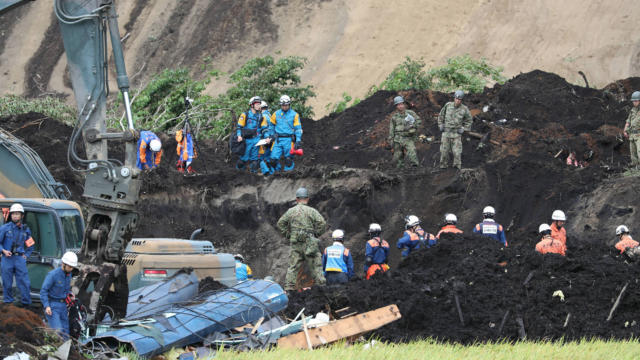The death toll for Japan’s latest earthquake is now over 30. But the Hokkaido quake hasn’t just cost lives; it’s highlighted the environmental and systemic vulnerabilities in Japan, as CGTN’s Terrence Terashima reports.
The earthquake that shook Japan’s northern island of Hokkaido has presented authorities with a number of challenges.
One that has been made apparent once again is that many Japanese are living in a perilous environment.
Just like the landslide that claimed over 70 lives in Hiroshima in July, the geological features of the land and soil – made up mostly of fine volcanic ash and pumice – in Atsuma are said to be delicate.
The heavy rain from Typhoon Jebi weakened the soil, and the earthquake was more than enough to cause a major landslide. That’s a national concern, as many Japanese live in similar mountainside rural areas across the country.
Another problem is the vulnerability of the power grid.
The earthquake caused a widespread blackout in all of Hokkaido after power plants failed in a domino effect. Authorities said 90 percent of the electricity in the region will be restored on Saturday, but that it will take another week to completely fix the problem.
All transportation on the island stood still for two days. Thousands of tourists, business people, and local residents took refuge in buildings wherever they could.
Ironically, this blackout triggered an argument over whether to restart the nuclear power plants that currently remain dormant. They were shut down after the accident at the Fukushima nuclear power plant, which was caused by an earthquake and tsunami.
The Japanese meteorological agency warns there is still the possibility of aftershocks, and heavy rains may cause other landslides due to the ground being considerably weakened by recent weather and the quake.
Moreover, Japan has seen a number of strong quakes recently and the typhoon season is not over yet. Caution is needed across the country.
 CGTN America
CGTN America
 Rescue workers search for missing people in Astuma on September 8, 2018 after a 6.6-magnitude earthquake hit the northern Japanese island of Hokkaido on September 6. (AFP PHOTO / JIJI PRESS / Jiji Press / Japan OUT)
Rescue workers search for missing people in Astuma on September 8, 2018 after a 6.6-magnitude earthquake hit the northern Japanese island of Hokkaido on September 6. (AFP PHOTO / JIJI PRESS / Jiji Press / Japan OUT)
